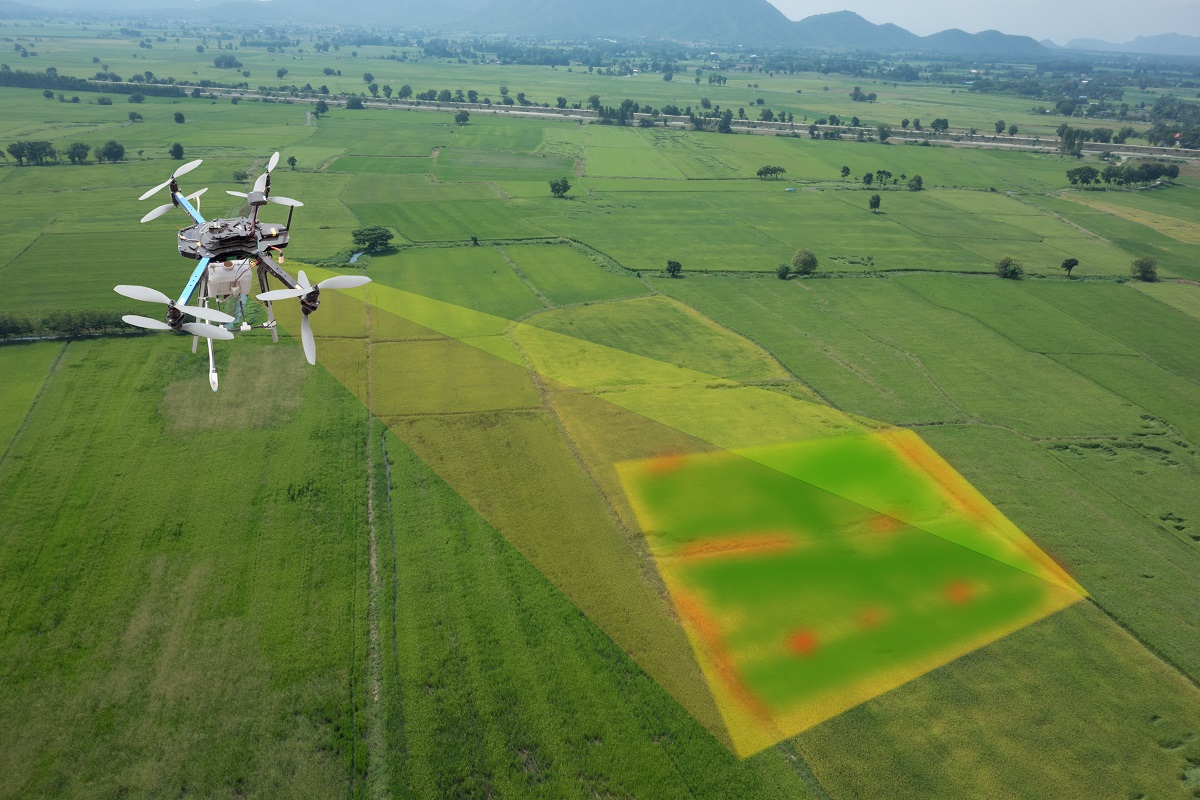Technology is an essential aspect of our lives, and it has become increasingly prevalent in the agricultural industry. There are many technology-based benefits that you can enjoy by taking advantage of technology-based services for your farm. Farmers who maximize the benefits of technology in their farms are more likely to be more productive and profitable.
Innovative Technologies for Agriculture
Remote sensing technology
One technology service that agriculture businesses should consider is remote sensing technology which helps farmers monitor their fields using satellites or aircraft to identify problems with crops or soil quality before they become serious issues.
Remote sensing technology also allows farmers to collect data about their land’s features like topography, which can be mapped out on computer screens for easy viewing and analysis. With this information at your fingertips, you’ll be able to make better decisions about what type of fertilizer will work best in different areas, how much water should be applied during each stage of the growing process, and how to best rotate your crops for optimal health.
Remote sensing technology can also be used in conjunction with drones for agriculture to monitor large areas or perform flyovers before harvest time so that farmers know exactly what they are working with when it comes down to harvesting their crops. This will result in higher quality produce at a lower cost, benefiting everyone involved, including the consumers.
Remote technology is also beneficial for animal agriculture, as it can be used to monitor nearby herds of livestock and determine dynamic information like pregnancy status, location on a map within an enclosed area or pastureland, number of animals in each herd, among other things. It will even keep track of different types of livestock in the area and determine which ones need to be removed.
GPS technology
GPS technology is being used in technology to track the location of humans, animals, or vehicles. It can do this because it has a device that sends out signals and then calculates where they are based on how long it took for the signals to come back. This technology can also be utilized by farmers as well if they want an easy way to keep up with their herd.
For example, technology can give you the location of each animal on a map within an enclosed area or pastureland and the number of animals in each herd, among other things. This will help pave the way towards better management processes for farmers.
Automated systems
Automated systems in agriculture technology allow farmers to control and monitor different processes more effectively. This technology can be used for a variety of purposes such as:
- Ear-tagging animals, which tells the farmer information like who they are and how old they are;
- Irrigation management, which allows farmers to control when and how much water they use in different areas of their farm; and
- Feeding technology, which gives the farmer a more efficient way to feed their livestock.

Farming technology has been developed over recent years with these specific purposes in mind so that it can be used on farms across the world. The benefits of technology are endless, especially when it comes to agriculture. It can help farmers be more efficient with their time and money. Technology has already been making strides towards improving the efficiency of agricultural businesses all over the world for quite some time now, but there is still room for improvement.
As technology continues to advance more every day, technology offers more benefits for agriculture. Below are some of these benefits:
- Better crop yield rates because of technology monitoring changes in weather conditions, soil quality, and other factors to improve yields;
- Decreased costs due to technology that can operate equipment remotely or automatically for tasks like planting seeds, harvesting crops, and other key processes;
- Enhanced farming processes that help farmers become more efficient in their tasks, which allows them to focus on other things while technology takes care of the important stuff;
- More efficient livestock breeding with technology that can track animal health and status; and
- More efficient methods of keeping farmers’ lands protected from natural disasters with technology that can monitor soil, water conditions, etc. so that farmers are prepared for the worst when it strikes.
The Impact of Technology
Technology has paved the way towards a more efficient agricultural industry. Technology has made it possible for farmers to track, monitor, and protect their crops more effectively. Because of technology, the agriculture industry has grown incredibly over the years. In the future, technology will continue to impact the agriculture industry positively.

